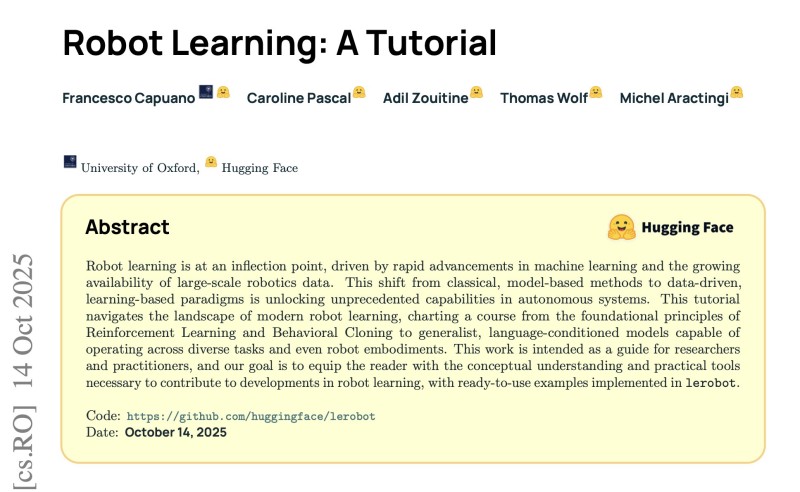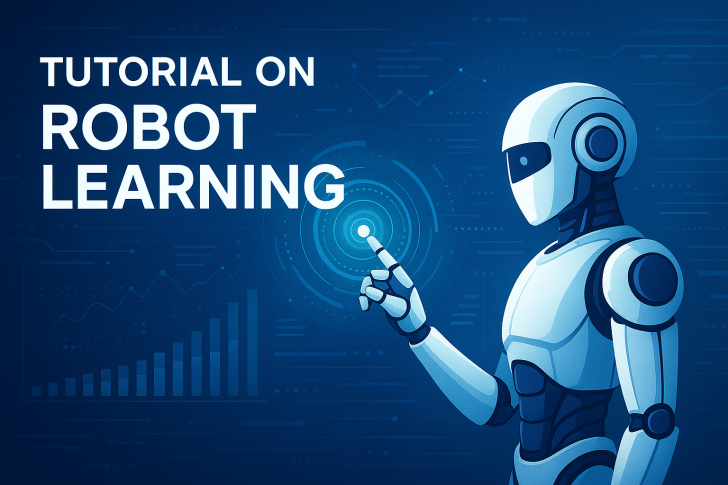Robot learning is going through a major shift right now, driven by breakthroughs in machine learning and access to massive robotics datasets. On October 14, 2025, researchers from the University of Oxford and Hugging Face dropped a comprehensive tutorial called "Robot Learning: A Tutorial" that gives both researchers and practitioners the conceptual framework and practical tools they need for modern robotics.
A Turning Point for Robotics
The tutorial represents a fundamental shift from traditional model-based robotics to data-driven, end-to-end learning approaches that enable unprecedented levels of autonomy and adaptability. Francesco Capuano, along with co-authors Caroline Pascal, Adil Zoutine, Thomas Wolf, and Michel Aractingi, emphasizes how the field is evolving from Reinforcement Learning (RL) and Behavioral Cloning (BC) toward generalist, language-conditioned models that can handle diverse tasks across different robotic platforms.

This shift highlights a new era in robotics, where intelligent systems learn from vast datasets and natural language, bridging the gap between human intent and autonomous machine behavior.
What Makes This Tutorial Stand Out
The work offers three main contributions that set it apart: conceptual clarity that makes modern robot learning foundations accessible for everyone from beginners to experts, hands-on tools through ready-to-use implementations via LeRobot (Hugging Face's open-source robotics library), and a practical bridge connecting cutting-edge AI research with real-world applications in areas like industrial automation and household robotics.
Why This Matters Now
Robot learning has broken out of the lab. By combining large-scale data with AI-driven generalist models, robots are starting to show real adaptability in messy, unstructured environments - exactly what's needed for healthcare, logistics, and autonomous systems. The release also showcases Hugging Face's commitment to democratizing AI by making frontier technologies open and accessible, while Oxford brings the academic depth and rigor that grounds the work in solid research foundations.
 Eseandre Mordi
Eseandre Mordi

 Eseandre Mordi
Eseandre Mordi


